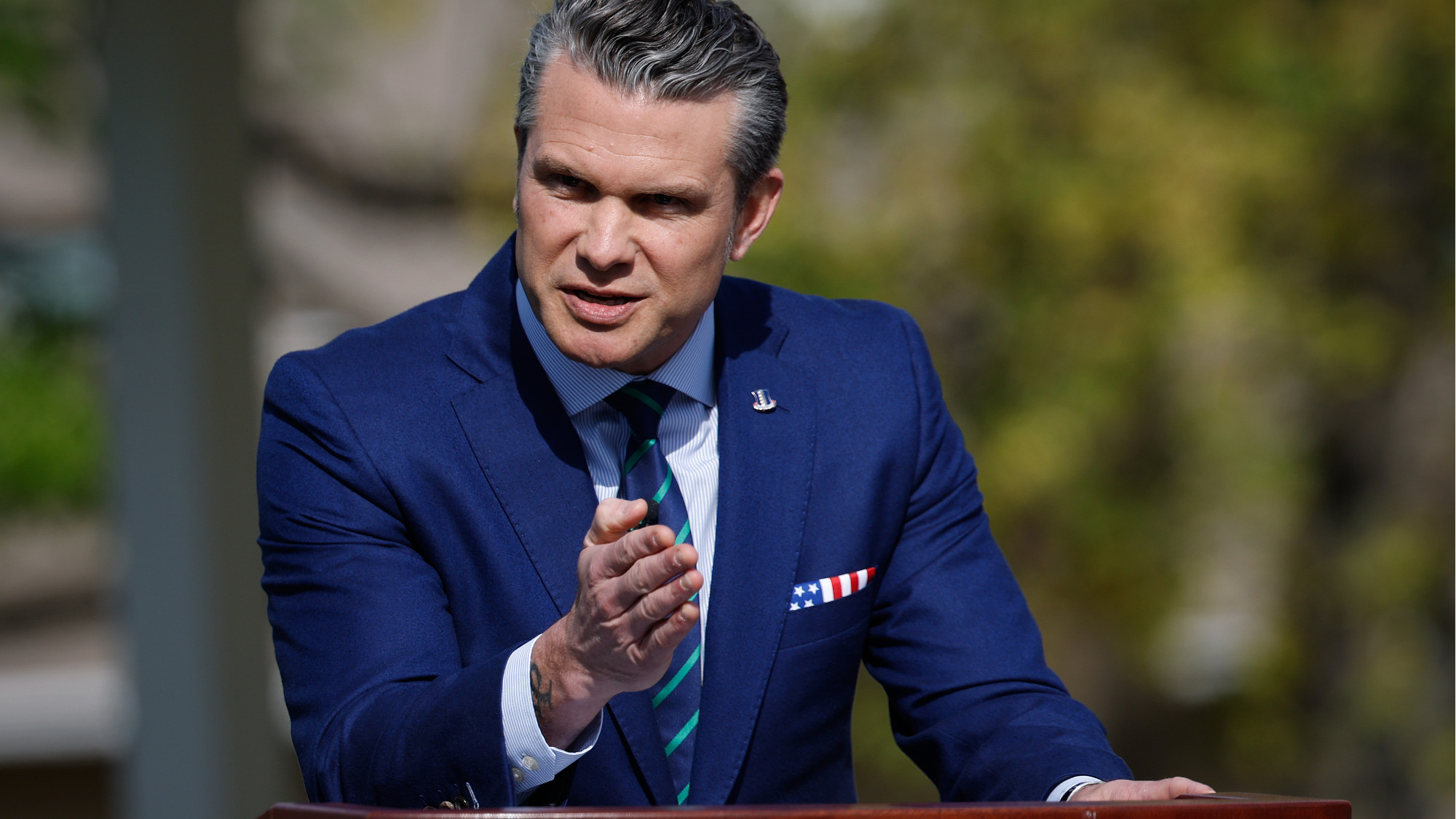Mitch McConnell outmaneuvers the Democrats — again
The Senate majority leader has expertly turned the Clinton impeachment trial against the opposition


A free daily email with the biggest news stories of the day – and the best features from TheWeek.com
You are now subscribed
Your newsletter sign-up was successful
Few Beltway figures have proven themselves cagier than Senate Majority Leader Mitch McConnell (R). When it came to fighting a showdown over the impeachment trial rules, however, McConnell had help — from Democrats past and present. And despite a last-minute surprise from former National Security Adviser John Bolton, McConnell got exactly what he wanted in the end.
Ever since the House passed two articles of impeachment against President Trump, McConnell has insisted that the Senate will follow the rules put in place by the unanimous vote for Bill Clinton's trial in 1999. Those rules allow the Senate to accept the articles of impeachment from House managers, question them as to the strength of the case, and then open the process up for votes on subpoenas, witnesses, and motions for dismissal. By deferring those questions for after the presentation of the case, the Senate can then structure the proceedings as impartially as possible — at least at the beginning.
Twenty years ago, then-Senate Majority Leader Tom Daschle (D-S.D.) proposed those rules, working with both Senate Republicans and the White House, and got them passed 100-0. Among those voting to approve the rules was newly minted Sen. Chuck Schumer (D-N.Y.), now Senate minority leader, who also used those rules to vote for a dismissal at the end of the presentment. "I hope a trial doesn't go forward," Schumer said at the time, pledging to "explore every possible way to avoid a trial." When a dismissal failed, the Senate held a series of votes on witnesses and procedures that largely broke along party lines, but in the end Clinton got acquitted on a bipartisan vote and the trial was largely considered credible.
The Week
Escape your echo chamber. Get the facts behind the news, plus analysis from multiple perspectives.

Sign up for The Week's Free Newsletters
From our morning news briefing to a weekly Good News Newsletter, get the best of The Week delivered directly to your inbox.
From our morning news briefing to a weekly Good News Newsletter, get the best of The Week delivered directly to your inbox.
For the past three weeks, McConnell has challenged Democrats to explain why those rules wouldn't apply to Trump just as well as Clinton. Why not look at the case first before deciding whether to call more witnesses? Until Monday, neither Schumer nor House Speaker Nancy Pelosi had an answer for McConnell's question that would have moved any of his caucus — until Bolton's surprise announcement.
During the House impeachment process, Trump's former national security adviser had been invited to testify but never subpoenaed. He had let it be known that he would challenge any subpoena in court to settle the competing claims over executive privilege from the White House over his advice and counsel to Trump, and the House withdrew its invitation rather than go to court to deal with the conflict. In his statement, Bolton decried the lack of action by the House committees on pursuing testimony from himself and his aide Dr. Charles Kupperman, who did get a subpoena that was subsequently withdrawn by the House. Bolton declared that he had "resolved the serious competing issues" on his own and had decided that "if the Senate issues a subpoena for my testimony, I am prepared to testify."
That certainly appeared to flip the question on its head. Would Bolton's decision matter to the people most able to impact the process — a handful of moderates in the Senate GOP caucus? Schumer amped up the pressure by declaring any failure to subpoena Bolton up front would amount to a "cover up."
In the end, however, it didn't work. Later in the same day, the two most likely Republicans to flip on the rules question instead came out firmly in support of McConnell's position. In her statement, Sen. Susan Collins (R-Maine) noted the unanimous adoption of the same rules in 1999 and noted they don't prohibit the later calling of witnesses. "I believe this process — the Clinton approach — worked well," Collins stated. Sen. Lisa Murkowski (R-Alaska) concurred, telling reporters that "I think we need to do what they did the last time they did this unfortunate process."
A free daily email with the biggest news stories of the day – and the best features from TheWeek.com
This decision in light of Bolton's statement signals that Senate Republicans have reached consensus on more than just the rules. If they thought Bolton had testimony to truly impeachable conduct, neither Murkowski nor Collins would have gone out on a limb for McConnell at this stage — especially Collins, who faces a tough re-election fight this fall. Even if Bolton could provide direct testimony about a quid pro quo for the aid to Ukraine, Republicans have argued that such an action doesn't rise to the level of an impeachable offense.
Therefore, testimony on these points is likely to be largely irrelevant anyway. Republicans view the articles of impeachment as the partisan fruit of a poisoned process, an impression no doubt fueled by Pelosi's attempts to withhold their transmission to force concessions out of McConnell. In fact, Murkowski specifically referenced the House delaying action while discussing her decision to vote in support of McConnell's plan. When asked about Bolton's testimony, Murkowski said that issue should be taken up after the House presents the case to the Senate, adding, "So do you have any interesting news for me on that? Like when we might be able to get articles?"
McConnell didn't waste any time after getting Collins and Murkowski on board, and later getting a renewed pledge of support from Mitt Romney as well. The rules package will likely pass on a strict party-line vote in contrast with Republican cooperation with Daschle 21 years ago. That too will likely sit poorly with the GOP majority after watching the House rush through its investigation to reach its predetermined conclusions. They may vote to allow witnesses to testify, but it seems very unlikely that anyone in the Senate will change their minds on removal now. Or anyone else, for that matter.
Want more essential commentary and analysis like this delivered straight to your inbox? Sign up for The Week's "Today's best articles" newsletter here.
Edward Morrissey has been writing about politics since 2003 in his blog, Captain's Quarters, and now writes for HotAir.com. His columns have appeared in the Washington Post, the New York Post, The New York Sun, the Washington Times, and other newspapers. Morrissey has a daily Internet talk show on politics and culture at Hot Air. Since 2004, Morrissey has had a weekend talk radio show in the Minneapolis/St. Paul area and often fills in as a guest on Salem Radio Network's nationally-syndicated shows. He lives in the Twin Cities area of Minnesota with his wife, son and daughter-in-law, and his two granddaughters. Morrissey's new book, GOING RED, will be published by Crown Forum on April 5, 2016.
-
 Buddhist monks’ US walk for peace
Buddhist monks’ US walk for peaceUnder the Radar Crowds have turned out on the roads from California to Washington and ‘millions are finding hope in their journey’
-
 American universities are losing ground to their foreign counterparts
American universities are losing ground to their foreign counterpartsThe Explainer While Harvard is still near the top, other colleges have slipped
-
 How to navigate dating apps to find ‘the one’
How to navigate dating apps to find ‘the one’The Week Recommends Put an end to endless swiping and make real romantic connections
-
 The billionaires’ wealth tax: a catastrophe for California?
The billionaires’ wealth tax: a catastrophe for California?Talking Point Peter Thiel and Larry Page preparing to change state residency
-
 Bari Weiss’ ‘60 Minutes’ scandal is about more than one report
Bari Weiss’ ‘60 Minutes’ scandal is about more than one reportIN THE SPOTLIGHT By blocking an approved segment on a controversial prison holding US deportees in El Salvador, the editor-in-chief of CBS News has become the main story
-
 Has Zohran Mamdani shown the Democrats how to win again?
Has Zohran Mamdani shown the Democrats how to win again?Today’s Big Question New York City mayoral election touted as victory for left-wing populists but moderate centrist wins elsewhere present more complex path for Democratic Party
-
 Millions turn out for anti-Trump ‘No Kings’ rallies
Millions turn out for anti-Trump ‘No Kings’ ralliesSpeed Read An estimated 7 million people participated, 2 million more than at the first ‘No Kings’ protest in June
-
 Ghislaine Maxwell: angling for a Trump pardon
Ghislaine Maxwell: angling for a Trump pardonTalking Point Convicted sex trafficker's testimony could shed new light on president's links to Jeffrey Epstein
-
 The last words and final moments of 40 presidents
The last words and final moments of 40 presidentsThe Explainer Some are eloquent quotes worthy of the holders of the highest office in the nation, and others... aren't
-
 A 'meltdown' at Hegseth's Pentagon
A 'meltdown' at Hegseth's PentagonFeature The Defense Secretary is fighting to keep his job amid leaked Signal chats and staff turmoil
-
 The JFK files: the truth at last?
The JFK files: the truth at last?In The Spotlight More than 64,000 previously classified documents relating the 1963 assassination of John F. Kennedy have been released by the Trump administration
